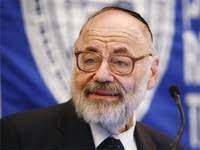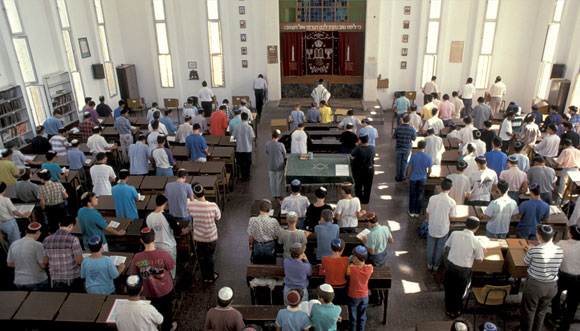November 22, 2022|כ"ח חשון ה' אלפים תשפ"ג Chayei Sarah 5783 - Chesed Starts at Home
Print ArticleChesed Starts at Home
Avraham Avinu has been the star of the show for the past two parshiyos and this week his life comes to a close.
Avraham’s life is associated with a lot of fanfare:
- He abandons his entire life and family to move to Eretz Canaan
- He wages war with the 4 Kings and the 5 Kings
- He fights HKBH to save the entire 5 cities of Sedom V’Amora
- He is willing to sacrifice his only son for HKBH.
Many of the rishonim even point out that by the end of his life, Avraham has become a very well-known personality in Eretz Yisrael, the father of monotheism, spreading the name of Hashem throughout the Middle East.
At the same time, when it comes time to wrap up Avraham’s life in Parshas Chayei Sarah, there is remarkably little fanfare. If anything, this parsha represents Avraham tying up loose ends, burying his wife and making sure his son, Yitzchak, gets married.
And one might argue, it’s kind of an anticlimactic way to end the story of such a dramatically important figure in the history of humanity!
I want to share with you this morning an idea from Rav Soloveitchik which will help us understand why these stories are, in fact, the MOST FITTING ending to the life of Avraham.
Let’s go back for a moment to when Avraham first shows up in Eretz Canaan. And let’s turn our attention to Avraham’s travels. The Torah tells us: “Vayisa Avraham Haloch v’nasoa HaNegba” Avraham travels south. He enters Eretz Yisrael from the North, through what is today known as Syria, and slowly makes his way down the length of the land from North to South, and eventually lands in Egypt.
Why does he travel so much? And why down to Egypt?
Answers the Rav, NOT because of famine. That might have the been the impetus for the timing, but really Avraham’s goal was to spread monotheism far and wide.
- We know that he would sit at the entrance to his tent looking to bring anyone and everyone close to Hashem.
- He plants an Eishel, what Chazal tell us was a place for people to come and rest and learn about the One Gd in the universe.
-
But then, says the Rav, Avraham realized that if he really wanted to magnify his message, he needed a country, a nation-state to represent his message.
Just like Rome had the holy roman empire to spread Christianity, Avraham wanted to teach the Egyptians about G-d and turn it into a hotbed of monotheism.
However, soon after he arrives, Avraham realizes it isn’t working, and when he comes back to Eretz Yisrael Hashem helps him refocus. And He tells him:
(Breishis 17:19) “Sarah Ishtecha yoledes l’cha ben v’karasa es shmo Yitchak.”
He tells him that he will have a child, one child with his wife Sarah.
And now your goals must shift. Your job, Avraham, says Hashem, is NOT to teach monotheism to the whole world. That will come eventually, thousands of years later with Mashiach. But for now, you have a simple, though not easy, job: Raise this child to follow your lead. Work together with your wife to create NOT a world of monotheists, but a HOME of monotheists.
And if you are successful, then Yitzchak will have a child who will carry on that legacy, and onward, until your children will return to Egypt, NOT to convert the Egyptians, but to show their own tenacity, their willingness to remain steadfast in their belief in Hashem, even in a world of non-believers.
And if they do that, Avraham, then this small family will grow to be a nation which eventually light up the whole world. Bringing your personal mida of being Avraham Ha’Ivri to the National stage.
The message that Hashem was teaching Avraham was that if you want to have an impact on the WORLD, you first have to have an impact in your HOME.
And with this, we can understand very well why the story of Avraham’s life concludes NOT with Akeidas Yitzchak, but with two more stories:
1) His purchase of a FAMILY burial plot.
2) His careful, thoughtful approach to helping his son find a wife.
Because the lesson of Avraham’s life – from BEGINNING TO END – is that ANY impact we will have on the outside world can only come AFTER we have placed our focus on our FAMILY FIRST.
And while this idea is, to a certain extent, obvious, it requires a constant reminder. Because we all want to feel that we matter, and when we contribute publicly, out in the world, that is the place where we are more likely to find recognition and praise. So, we are drawn to that type of chesed. And, of course, the world NEEDS people to step up publicly and help the klal. However, even as we step out to save the world, we must always keep our eyes on the one place where NO ONE ELSE is needed as much as we are, and that is OUR HOMES.
And perhaps this is why we refer to our ancestors, those who began our religion, not as saints or prophets, or any other title. Rather, we call them the AVOS & IMAHOS. Why? Not simply because they are our great-grandfathers and grandmothers, but because at their core, the lesson they teach us is that the secret to our survival and thriving as a nation is NOT our political might or even our national religious identity. Our strength and our survival as a people rest in the power of the home of each and every Jewish family.
A number of years ago Yeshiva University celebrated the 50th anniversary of Rav Aharon Lichtenstein’s serving as Rosh Yeshiva. In honor of the occasion the rabbinic alumni’s journal, Chavrusa, interviewed Rav Aharon and asked him many fascinating questions. The last question is interesting because of the amazing answer Rav Aharon gave.
The question posed to Rav Aharon was - "What are you most proud of having accomplished during these years of service?"
Rav Aharon could have listed many many accomplishments. He had built and helped shape Torah institutions like Yeshivat Har Etzion & Yeshiva University. Without a doubt he was one of the greatest Talmidei Chachamim of his time.
Rav Aharon answered as follows:
“Looking back over the past 50 years, what I am proudest of is what some would regard as being a non-professional task. I'm proudest of having built, together with my wife, the wonderful family that we have…”
The Mishna in Pirkei Avos teaches us:
Al Tadun es Chavercha ad shetagiya limkomo (Avos 2:4)
- We typically translate this as: “Don’t judge another person until one has stood in his place.”
However, I have always preferred a different pshat that I heard many years ago:
If you want to know a person for REAL. If you really want to understand who he or she is, see how they are BIMKOMO, in his or her place, AT HOME. Because the essence of who we are is who we are at home.
This is the lesson HKBH taught Avraham Avinu early on, and it is the message the Torah teaches us with how it closes out the story of his life: It is wonderful and amazing to help the world. It is great to volunteer and commit ourselves to other people. It is part and parcel of what it means to be a Torah Jew.
But before we start that process of being a light to others, we must always first turn inwards, making sure we are making our number one priority our spouse, our children, our siblings, and our parents. Because, as history has taught us, the greatest source of strength for our entire nation is not our armies or our institutions: It is the Jewish home.




